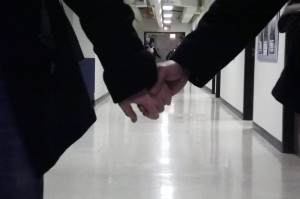Gay Marriage: Not just a dream in Illinois
April 12, 2013

In recent years, the fight for marriage equality has taken political and ideological center stage for the LGBTQA community. Members of the LGBTQA community have been fighting for equal rights under the law since the 1969 Stonewall riots in New York City. Those riots are credited as being the start of the gay rights movement, a movement under which many LGBTQA Pro Activist groups flourished. Before fighting for marriage equality, the fight was for laws to change the definition of hate crimes to include sexual orientation as a protected quality.
Barack Obama made a huge step this year at his Inauguration when he stated “Our journey is not complete until our gay brothers and sisters are treated like anyone else under the law.” As of this year there are nine states in total that recognize marriage equality, and soon Illinois may be one of them. On Valentine’s Day, the gay marriage bill was approved by the Illinois Senate and as of Tuesday, Feb. 26, 2013, the bill was heard by the Illinois House Executive Committee. On March 13, 2013, Speaker of the House Michael Madigan said that the bill currently lacked 12 votes of the 60 it needed to pass, indicating that the bill may have a difficult time passing the House. However, Illinois Governor Pat Quinn has said he will sign the bill if it comes to his desk.
Last year Illinois began issuing civil unions to both same sex partners, and opposite sex couples. Civil unions are considered “the next best thing” by many, and according to the website of Attorney Beverly Pekala, who deals with family law; it is. A civil union deals with the legality of having a marriage. Similarly like an opposite sex marriage, both parties have certain legal obligations such as spousal support, recognition in cases of emergency, recognition of partnership right in case of death, issues regarding wills, etc. Civil unions, unlike gay marriages, are only recognized in five states, and while Illinois is certainly not the last state which will be approving gay marriage, it certainly is a small margin of states which both recognize the marriages and approves them.
Many might be shocked to know that there are a total of thirty five states which have anti-gay-marriage laws in place which restrict marriage from being anything other than opposite sexed marriages, while only two states out of the fifty recognize out-of-state marriages, and only three states have broad domestic partnerships. With the way that gay marriage is slowly being approved state by state, soon the thirty five states which have defined marriage as being between two opposite sexed individuals will be dwindled down and eventually the entire spectrum of individuals who are within the LGBTQA Community can and will be married.





